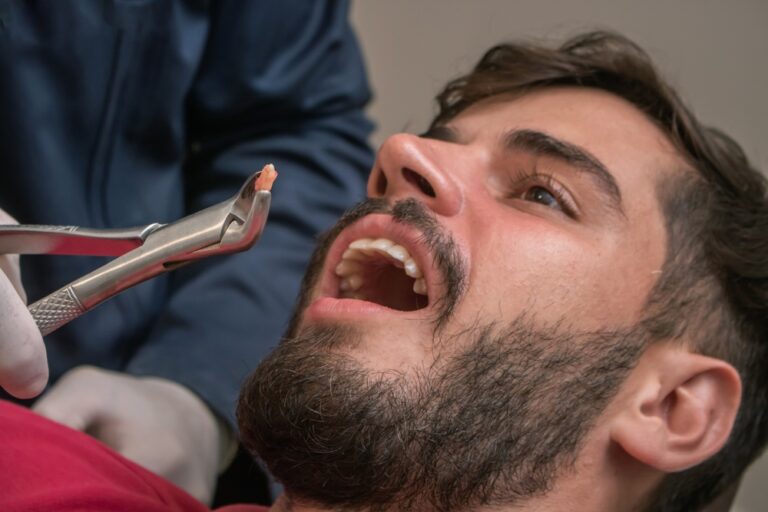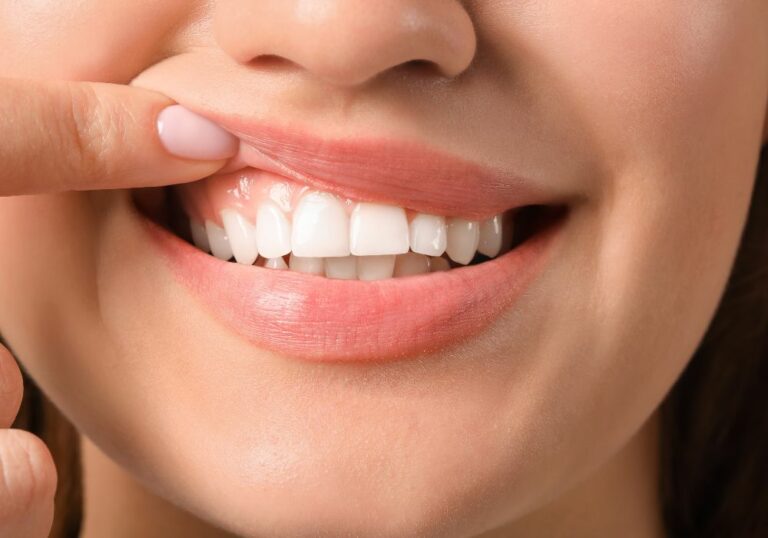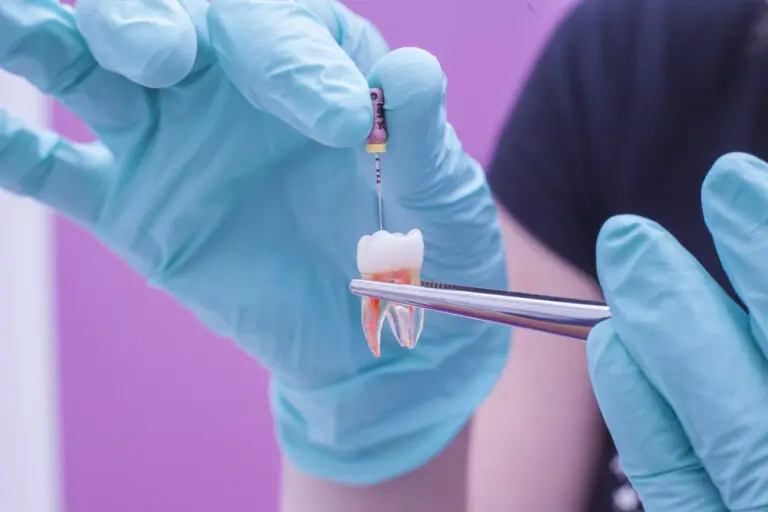Noticing a fuzzy sensation along the bottoms of your teeth? That unusual feeling can have several different causes. A mild case of fuzzy teeth may simply mean you need to brush a bit better. But ongoing fuzziness, especially accompanied by other symptoms, may require seeing a dentist.
In this comprehensive guide, we’ll explain the most common reasons the bottoms of your teeth can feel fuzzy. You’ll learn how factors like plaque, gingivitis, dental procedures, and more can create fuzziness. We’ll also provide tips to help minimize fuzzy teeth through proper oral care. Finally, you’ll find out when fuzzy teeth warrant a prompt visit to the dentist to avoid complications.
With the right information, you can identify potential causes of fuzzy teeth and take steps to keep your smile feeling fresh, clean and fuzz-free. Keep reading to become an expert at understanding and preventing this common dental dilemma.
Understanding What Causes That Fuzzy Feeling on Your Teeth

Have you ever noticed a fuzzy or fuzzy feeling on your teeth, particularly on the bottoms? This unusual sensation can be caused by a few different dental issues. Understanding the potential causes can help you figure out if it’s a minor problem or something more serious that requires a dentist’s attention. We’ll explore the common reasons the bottom of your teeth may feel fuzzy and what you can do about it.
Plaque Buildup
One of the most common culprits of fuzzy teeth is plaque. Plaque is a sticky film of bacteria that forms constantly on your teeth. Usually good oral hygiene like brushing and flossing can remove plaque before it leads to more serious issues. But when plaque builds up, especially along the gumline and in between teeth, it can create a fuzzy sensation on the bottoms of your teeth.
The texture of plaque along the bottoms can feel soft, almost furry when you rub your tongue over it. As plaque accumulates, it hardens into tartar. This can create an even more pronounced fuzzy texture on teeth. The rough feeling is a sign that plaque has been sitting on your teeth for a while, irritating gums and putting you at greater risk for decay and gingivitis.
Making a concerted effort to thoroughly but gently brush and floss should help remove the fuzzy plaque buildup. Pay extra attention to the gum line and interdental areas where plaque loves to gather. An antimicrobial mouthwash can also help reduce lingering bacteria.
Gingivitis
If plaque is left to fester, it can lead to gingivitis – early stage gum disease. Gingivitis causes gums to become inflamed, swollen and tender. As the gums swell around the base of teeth, it can create a fuzzy sensation on the bottoms of your teeth.
Puffy, inflamed gums don’t fit as snuggly around teeth anymore. This looser fit means more room for plaque, bacteria and debris to gather in the pockets around teeth. All this irritation can make it feel like there is a layer of fuzz along the bottoms of teeth.
The treatment for fuzzy teeth from gingivitis is improving your oral hygiene routine. This includes brushing twice daily for two minutes each time, flossing at least once per day, and using antiseptic mouthwash. Your dentist may also recommend coming in for more frequent cleanings and polishing to remove plaque buildup.
Hairy Tongue
While not very common, having a hairy tongue can also make the bottoms of your teeth feel fuzzy. With this harmless but unpleasant condition, the top surface of your tongue becomes covered in tiny hair-like projections.
These little projections are actually overgrown papillae – the tiny bumps that contain your taste buds. When papillae grow longer than normal, food debris and bacteria get trapped between the hairs. This can cause discoloration and a fuzzy texture.
Having a hairy tongue usually isn’t serious. But it can cause bad breath and unpleasant mouth feel. Proper oral hygiene like brushing the tongue when you brush your teeth can help remove the hairs. If it persists, your dentist may recommend prescription anti-fungal or antibiotic medication.
Oral Thrush
A fungal infection called thrush can also cause fuzzy teeth. Oral thrush occurs when there is an overgrowth of yeast in the mouth, often the Candida species. It’s most common in denture wearers, infants, and those with weakened immune systems.
Thrush can form cottage cheese-like lesions on the insides of cheeks, tongue, gums, palate and tonsils. As these lesions develop on gums near the base of teeth, it can make your teeth feel fuzzy. The texture is caused by the stringy white patches rubbing against teeth.
Treating thrush requires an anti-fungal medication, prescribed by your doctor or dentist. Improving oral hygiene, sterilizing dentures, and swishing with antifungal mouthwash can also help prevent thrush from reoccurring once it clears up.
Dental Procedures
Certain dental procedures can leave your teeth feeling fuzzy temporarily. For example, getting your teeth cleaned thoroughly may make it feel like there is a coating on them afterward. That’s simply because your mouth and teeth have less built-up plaque.
The bottoms of your teeth may also feel fuzzy after procedures like fillings, root canals, crowns, or tooth extractions. This is due to inflammation and sensitivity as the area heals. The feeling should fade within a few days as your mouth recovers. But let your dentist know if fuzziness persists beyond a week of a procedure.
Sensitivity
Increased sensitivity, especially to cold foods or air, can also make teeth feel fuzzy. The sensation often affects the necks of teeth and areas where gums have receded. Sensitivity results from loss of enamel or exposure of the tiny tubules that run through your teeth.
Treatment includes desensitizing toothpaste, brushing gently, and avoiding trigger foods. If sensitivity occurs suddenly, have your dentist rule out potential causes like decay, cracks or dental damage. Prompt treatment will minimize permanent sensitivity.
Medications
Some medications like antihistamines, pain meds, diuretics and antidepressants can reduce saliva flow, leading to more plaque buildup and fuzzy teeth. Less saliva allows bacteria to grow more readily. Tell your dentist about any meds you take to discuss options for managing related oral health side effects.
Poor Saliva Flow
Conditions that reduce saliva flow such as diabetes, hypertension, Sjögren’s syndrome and some cancer treatments can also increase your risk of plaque buildup and fuzzy teeth. Saliva helps wash away bacteria and food debris. When saliva production is impaired, plaque and fuzziness can occur more easily.
Diet
Frequent consumption of acidic, sugary or starchy foods feeds the bacteria that form plaque. This allows plaque to build up faster. Limit snacks with sugar or refined carbs and drink plenty of water to help minimize plaque.
When to See a Dentist About Fuzzy Teeth
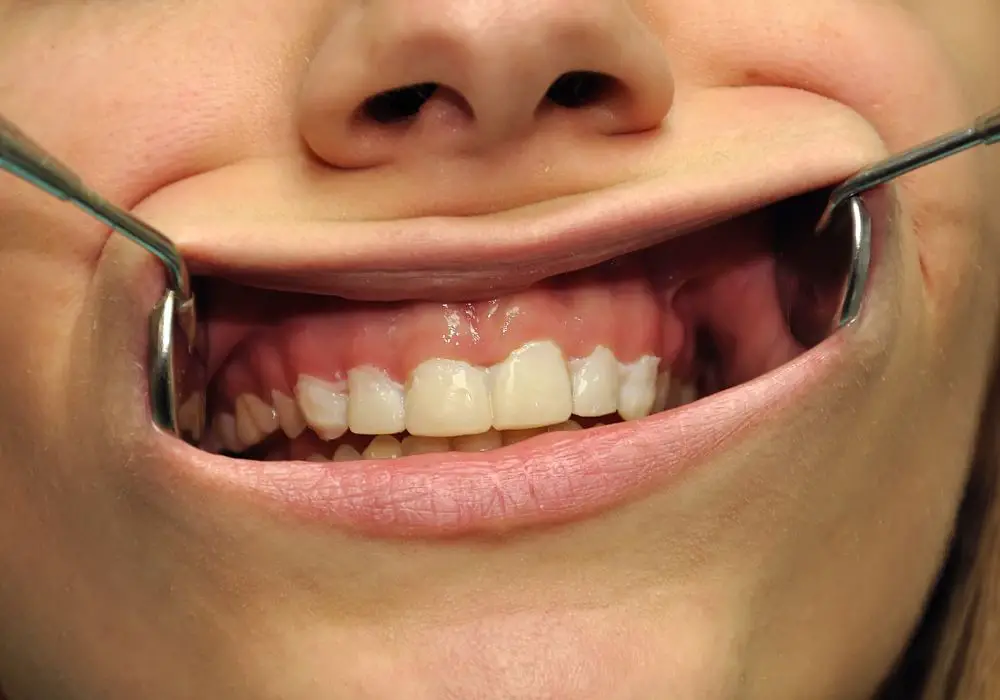
Noticing your teeth feel fuzzy now and then after eating something sticky or not brushing well enough is normal. But if the sensation persists for more than a few days, it could indicate a problem warrants seeing a dentist. Schedule an appointment if your teeth constantly feel fuzzy and you notice any of the following:
- Red, swollen, painful gums
- Bleeding when brushing or flossing
- Persistent bad breath
- White or yellow patches on gums or inner cheeks
- Changes in teeth sensitivity
- Recurring mouth infections like thrush
- Loose teeth
Chronic fuzzy teeth when coupled with these symptoms can signal gingivitis, thrush, or other dental issues in need of professional treatment. The sooner you get help, the lower your risk of permanent damage.
Seeing a dentist promptly is especially crucial if you experience fuzzy teeth along with:
- Sudden increased tooth sensitivity
- Gum or jaw pain
- Bumps, lesions, or swelling in mouth
- Feeling like something is stuck in between teeth
- Loose teeth
- Severe fuzzy feeling even after brushing
These signs could indicate an urgent dental problem requiring immediate attention, like an abscess or advanced periodontal disease. Don’t delay in getting evaluated to prevent complications.
Tips for Reducing Fuzzy Teeth
While fuzzy teeth are sometimes inevitable, there are things you can do to minimize buildup on your teeth. Here are some tips for keeping the bottoms of your teeth feeling smooth and clean:
Brush Properly: Brushing properly is key to preventing fuzzy teeth. Use a soft-bristled toothbrush and brush for two minutes twice per day. Hold your brush at a 45-degree angle to clean the front and back of teeth. Use gentle circular motions and don’t overlook the gums and inner surfaces where plaque loves to collect.
Floss Thoroughly: Floss once a day, gently rubbing up and down the sides of each tooth to remove debris between teeth where your brush can’t reach.
Clean Tongue: Use a tongue scraper or brush’s tongue cleaner to remove bacteria and buildup that leads to fuzziness.
Rinse with Mouthwash: Swish daily with an antiseptic, anti-plaque mouthwash containing cetylpyridinium chloride to kill bacteria missed by brushing and flossing.
Eat a Clean Diet: Reduce sugary and acidic foods and beverages that can erode enamel and lead to decay and gum problems. Stay hydrated with plenty of water instead of sugary drinks.
Don’t Smoke: Smoking makes your mouth more susceptible to infections and oral health conditions.
See Your Dentist: Get cleanings and exams at least once or twice a year to remove hardened tartar and detect issues early. Professional cleanings are essential for healthy gums and reducing plaque buildup.
Get Issues Treated Promptly: If you have any medical conditions increasing infection risks, stay on top of your oral health. Seek treatment for mouth infections like thrush quickly before they spread.
Clean Oral Appliances: If you wear dentures, retainers, aligners or other oral appliances, thoroughly clean them each day to avoid bacteria and fungus buildup near your gums and teeth.
With diligent oral hygiene and professional cleanings, you can keep fuzzy teeth at bay. But if fuzziness persists despite your best efforts, promptly visit your dentist for help getting to the bottom of what’s causing it.
When Fuzzy Teeth May Require Seeing a Dentist
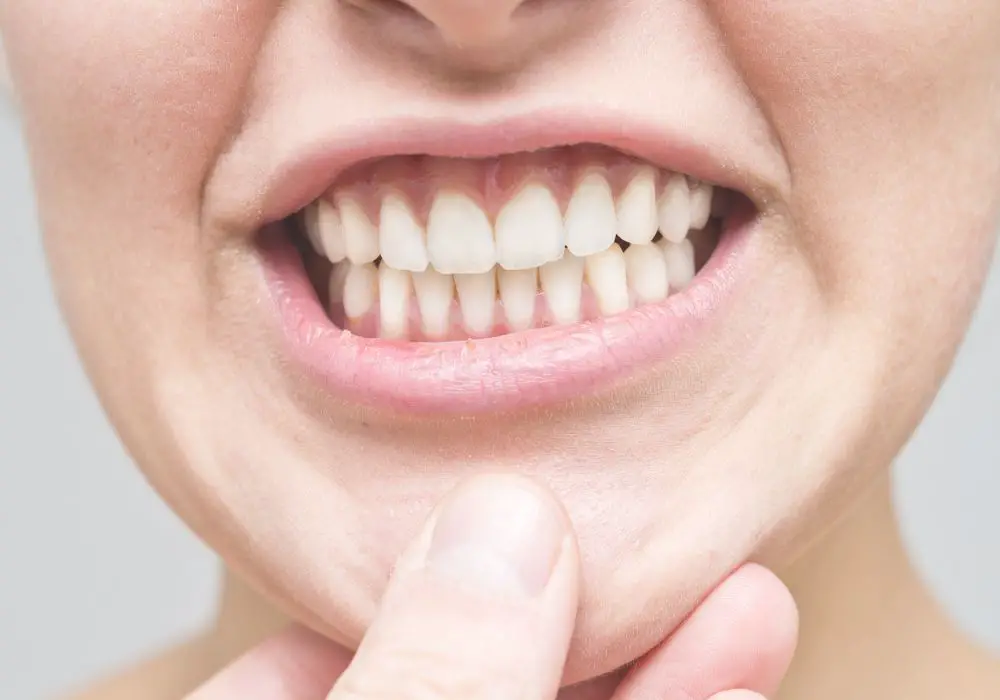
While paying attention to your oral hygiene routine is the first line of defense, sometimes fuzzy teeth persist despite your best efforts. If you can’t seem to eliminate the fuzzy sensation on the bottoms of your teeth, visiting your dentist promptly is wise.
Some signs it’s time to seek professional help include:
- Fuzziness when nothing is visibly trapped between teeth
- Discomfort or bleeding of gums
- Increased sensitivity, especially to cold
- Appearance of spaces between teeth
- Foul taste in your mouth
- Dry mouth
- Changes in the fit of partial dentures
- Sudden increased fuzzy sensations without changing oral hygiene habits
Schedule an office visit if you notice any of these issues. The dentist can identify what’s causing your fuzzy teeth and provide solutions. Professional teeth cleaning, plaque scraping, antimicrobials, or addressing gum recession may be needed to restore your teeth’s smooth feeling.
For recurring fuzzy teeth, customized treatment plans to manage plaque buildup may be prescribed. More frequent dental visits, prescription strength fluoride treatments and dental sealants are some preventive options your dentist may employ.
With the right prevention and quick treatment when necessary, fuzzy teeth don’t have to be a constant annoyance. Stay vigilant with oral hygiene, address chronic conditions increasing oral health risks, and see your dentist at the first sign of trouble. Keeping your teeth smooth and fuzzy-free is an attainable goal with a proactive approach.
Frequently Asked Questions About Fuzzy Teeth
Here are answers to some common questions about dealing with fuzzy teeth:
Q: Why do my teeth feel fuzzy even right after I brush?
A: If your teeth feel fuzzy even after brushing, you may have plaque and buildup in hard to reach areas. Be sure to carefully brush the inner and outer surfaces of all your teeth. Focus on areas around fillings, crowns, gums, and between teeth. Flossing is essential too to remove debris brushing missed. An antimicrobial mouthwash can also dislodge bacteria a brush can’t reach.
Q: Is fuzzy teeth just a sign of getting older?
A: While your oral health tends to decline as you age, fuzzy teeth at any age is not normal. Poor oral hygiene and conditions like dry mouth that increase with age allow more plaque buildup. But keeping up dental visits and daily habits can prevent fuzzy teeth at any stage of life.
Q: Can fuzzy teeth be a sign of tooth decay?
A: Yes, fuzziness along the gumline may indicate tooth decay brewing. Plaque buildup can destroy enamel and as cavities form, affected teeth can feel rough before visual signs appear. See your dentist promptly if you notice fuzzy spots as decay is easier to treat early.
Q: I brush and floss twice a day and still get fuzzy teeth. What can I do?
A: Some people are more prone to plaque buildup for reasons like crooked teeth, braces, dry mouth, or genetic predisposition. Discuss options like more frequent dental visits for professional cleanings, fluoride treatments, antimicrobial rinses, or specialty toothpastes with your dentist.
Q: Are there any health conditions associated with chronic fuzzy teeth?
A: Yes, certain conditions like diabetes, leukemia, oral cancer, and HIV/AIDS increase risks for ongoing oral health issues. Tell your dentist about any chronic illnesses you have so they can help manage related dental complications.
Q: If I have fuzzy teeth, does that mean I have gum disease?
A: Not necessarily. Occasional fuzzy teeth from eating sticky foods or inadequate brushing doesn’t necessarily indicate disease. But chronic fuzzy teeth that don’t resolve with improved oral care may be a sign of gingivitis or periodontitis. See your dentist to determine if gum disease is behind persistent fuzzy teeth.
Q: How can I tell if fuzzy teeth warrants seeing a dentist?
A: You should visit your dentist if fuzziness persists over a week, is accompanied by bleeding or sore gums, increases tooth sensitivity or discomfort, or occurs without an apparent cause like poor brushing. Sudden fuzzy teeth could indicate an urgent problem needing prompt care. When in doubt, check with your dentist.


